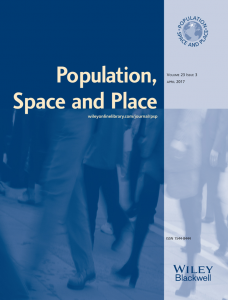The British National Party: ‘Still Discriminatory’?
Today, the Central London County Court has delivered its verdict in relation to the British National Party’s [BNP] membership policy. Judge Paul Collins’ decision – whilst noting the BNP’s attempts to modify its constitution – found that the party recruitment policy was ‘still likely to be discriminatory.’ Since the proceedings have been initiated the BNP has removed any requirement for members to be white, although it retains many troubling conditions. For instance: the compulsory opposition to “integration or assimilation” of...



1530-2415/asset/SPSSI_logo_small.jpg?v=1&s=703d32c0889a30426e5264b94ce9ad387c90c2e0)
